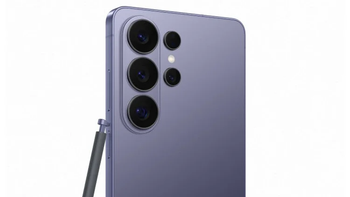T-Mobile is ready for the Snapdragon 8 Gen 1 5G modem in Samsung's S22

T-Mobile's dynamic duo over at Qualcomm's Snapdragon Tech Summit in Hawaii - VP of product engineering Ryan Sullivan and SVP of tech strategy Karri Kuoppamaki - have sat down for another interview further detailing the Un-carrier's 5G plans.
This time it was for PCMag's Sascha Segan and includes a few revelations about the expected performance of Qualcomm's new X65 5G modem that comes with its Snapdragon 8 Gen 1 chipset that will be in most all of the flagship Androids in the next year or so, including Samsung's Galaxy S22 series:
- T-Mobile will be able to take advantage of the Qualcomm X65's three-carrier 5G aggregation in several different ways. The carrier has more than 100MHz of mid-band 5G spectrum in a lot of places, and in those places, it needs 3xCA to do two 100MHz mid-band channels plus a low-band channel for uplink/better range. There are also some cities (like New York) where its mid-band allocation is split in half and can be used like two separate bands. So X65 phones (such as the Galaxy S22) should bring considerable performance improvements on T-Mobile's mid-band.
- 3.45-to-3.55GHz spectrum, which is in the middle of being auctioned, should clear in some places by the end of 2022. This means that AT&T, and whoever else buys that spectrum, will potentially see a considerable boost in C-band performance specifically when used with those X65 modems next year, over and above the initial C-band launches.
As far as Verizon's vaunted mmWave 5G is concerned, it is now just a few candles on T-Mobile's "5G layer cake," instead of a full layer, as you can see in the picture from Qualcomm's Snapdragon Summit, and it is not clear if T-Mobile is just trolling, or it genuinely has given up on the speeds of mmWave.
It is, after all, the only 5G tech theoretically able to deliver the 10Gbps speeds that Qualcomm's new X65 modem is rated at, provided that your network can supply such speeds, of course. The mmWave networks are very bad at range and building penetration, though, so they make more sense at specific crowded places like stadiums, just what Verizon has been doing with its NFL 5G contract.
The other question is whether you would need 10 Gigabit 5G speeds on your phone in the foreseeable future at all. For instance, even 8K streaming video chat wouldn't need as much bandwidth; despite that the Snapdragon 8 Gen 1 now supports it, T-Mobile's execs mentioned in the interview that their top 5G plan called Magenta Max will keep maxing out at 4K streaming, and that has nothing to do with deprioritization.
In any case, it looks like the Snapdragon 8 Gen 1 processor will not only have the more advanced 4nm production node amongst mobile chipset but it is also scoring the best 5G modem of the company that does 5G modems best - Qualcomm. The Galaxy S22 series is shaping up to be at the forefront of 5G connectivity, as has become customary for Samsung's flagship phones that usually beat iPhones to the punch in that regard. The iPhone 13 models, after all, have to make do with Qualcomm's current generation X60 modem, and even then the latest iPhones get beat by Samsung's Galaxy phones.
With the Galaxy S22 models that can take advantage of the Qualcomm X65 modem's three-carrier 5G aggregation as soon as T-Mobile, Verizon, and AT&T start enabling the technology on their next-gen networks, the 5G connectivity gap between Apple and Samsung is only poised to grow wider, and Samsung will have the definite advantage at least until the iPhone 14 rolls off the conveyor belts.
Follow us on Google News













Things that are NOT allowed:
To help keep our community safe and free from spam, we apply temporary limits to newly created accounts: